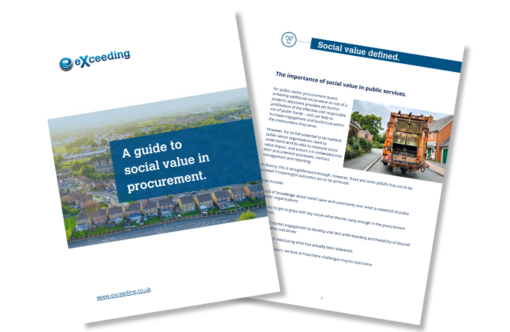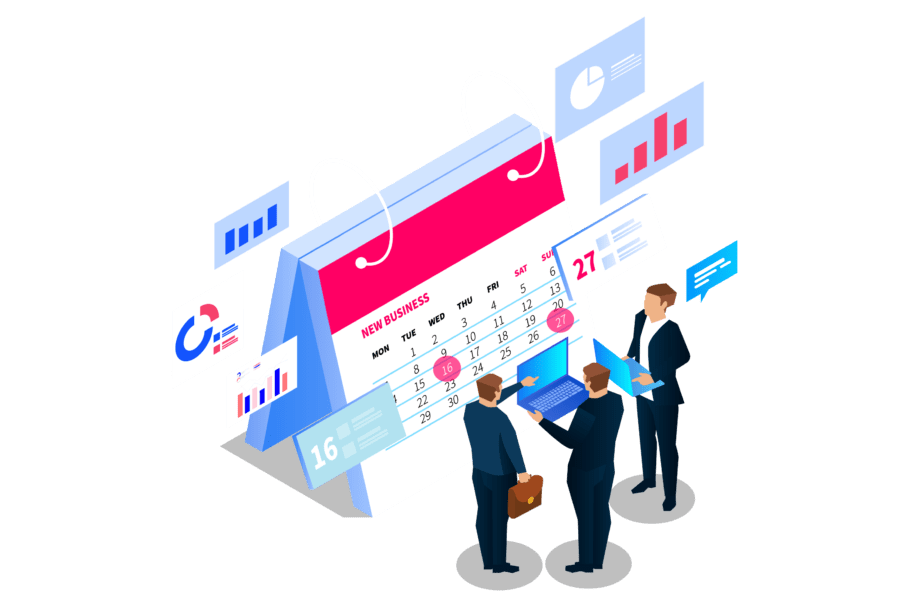The Benefits of Using a Service Transition Manager
Replacing outdated services or software can be challenging for any organisation. It can be a painstaking process that you don’t have that you may not have the time or the expertise to do.
Keeping everything live and operational whilst making the switch is the real challenge you face, which is where eXceeding can help. eXceeding is a procurement consultancy that deals in complex procurements and service transition management. Founded on the principle of providing impartial, best practice, advice to organisations of all shapes and sizes. eXceeding has years of experience in delivering solutions and results to organisations in both public and private sectors.
This guide will walk you through the benefits of using a service transition manager, inform you about what they can do for your organisation and advise on how you can get started.
What is Service Transitioning?
Service transitioning is the act of removing old systems and services for the purpose of replacing them with newer, updated ones. This should be executed as seamlessly as possible, so the organisation’s reputation is maintained and with minimal disruption to services. The transition requires sufficient planning and coordination in order to facilitate a smooth process and keep the organisation running as usual.
As part of a transition process, these are the types of objectives given to the service transition manager:
Plan and manage the changes in service efficiently and effectively – the service transition manager or team will be solely responsible for the owning, planning and managing of the process.
Set appropriate expectations for the performance and usage of new or changed services – by working with the organisation, a service transition team will set realistic expectations that meet the needs of the client.
Deploy the service releases into environments that can support them adequately – the team will prepare adequate environments and only release the new service once the environment is ready.
Ensure that the service changes create the expected value for the business -the team should create targets based on the value the new system will bring, as well as an efficient transition that will help meet them.
Provide the necessary knowledge and information about services and service assets – the transition management team will be responsible for educating the organisation’s employees on how to operate and troubleshoot the new service.
Include stakeholder management and communication – keeping stakeholders informed and updated on how the transition is progressing is vital.
The Role of a Service Transition Manager
The role of a transition manager, or team is to smoothly plan, prepare and implement the transitioning from one service to another with as little disruption as possible. The step-by-step instructions below goes into further detail about the process.
Stage 1
The first step in the process is planning and managing resources for the transition to be take place. This allows the transition manager and their team to align with the objectives set out by the organisation and their stakeholders.
Stage 2
The second phase consists of developing a rigorous framework for evaluating service capabilities and risk profiles before anything changes. This will allow for a much smoother process and ensure that the business stays uninterrupted.
Stage 3
The third phase is vital to the process. The service transition manager and their team must establish and maintain the integrity of service assets. This is one of the biggest challenges a team will face.
Stage 4
The penultimate stage involves testing the service. Depending on the size of the service that is being transitioned, it’ is often likely that the transition will be phased. With a phased process, it is vital that a team can execute an efficient method of building, testing and deploying that can be replicated for each part of the phase transition.
Stage 5
The final phase of the process needs to ensure that services can be managed, operated and supported effectively.
Benefits Provided by a Service Transition Manager
Here at eXceeding, a real- life case study was conducted for the Cambridge university Hospital (CUH) that demonstrates the many benefits of using a service transition team.
The first benefit is having a point of contact for all service transition processes. The team at eXxceeding was the point of contact for the CUH board and their head of IT. This meant that both sides could communicate with our transition team , and were able to voice any challenges they were facing, or objectives they wanted to meet.
The CUH relied on eXceeding to be solely responsible for the step-by-step planning and transitioning processes. This covered everything from the contract exit strategies to the replacement of services, all the while ensuring there’s no interruption to the day-to-day running of the organisation.
Due to the nature of the transition, eXceeding’s senior team communicated regularly with the CUH board to keep them informed about the progress and ensure all documentation and record keeping was maintained .
Working with an experienced team leads to an efficient service and transition, as well as constant monitoring of the processes. At eXceeding, efficiency is guaranteed and the work is always completed to the highest standards, on your preferred timescale.
With the help of eXceeding, the Cambridge University Hospital received a transition service that saved lives. The benefits they saw in cost saving was huge, and, most importantly, there was no detrimental impact on patient care during the project delivery.
In Summary
Hiring a service transition manager is vitally important for any business. Transitioning services can be a long and complicated process if not done by highly experienced professionals. A transition service team and manager, can turn a complex project into something much smoother, resulting in huge cost reductions and much less downtime.




